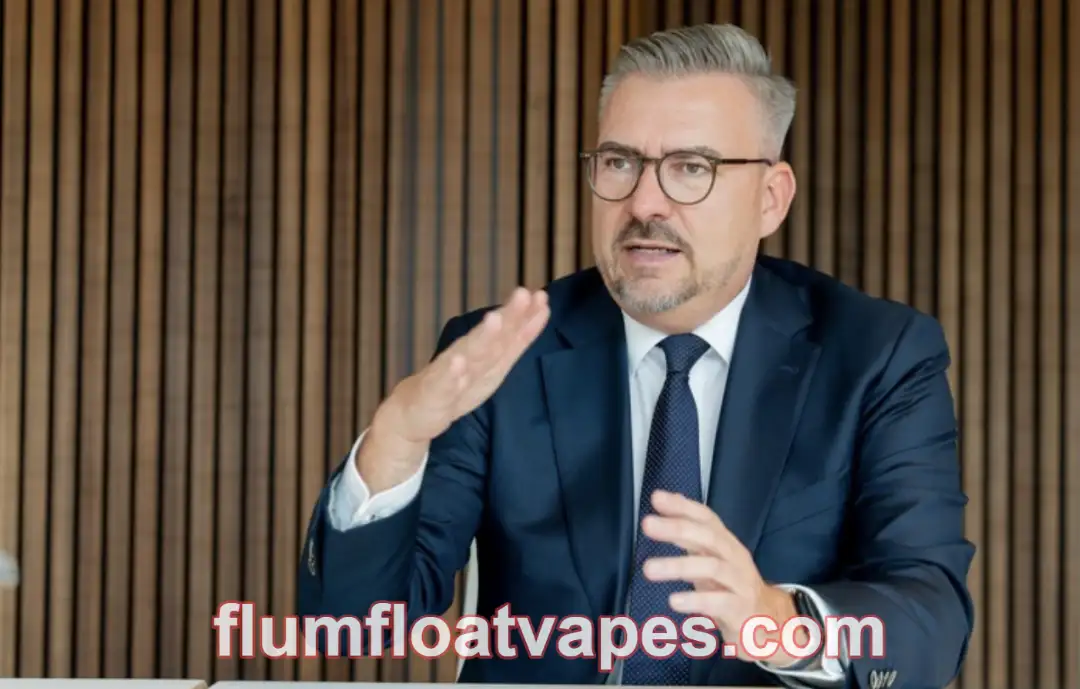Vape Taxes Are Rising: A Potential Crisis in the Vaping Market and the Surge of Disposable Devices
Vaping has undoubtedly made its mark in the global market, attracting millions of users who view it as a healthier alternative to traditional smoking. But now, countries like Germany and South Korea are cracking down on the vaping industry with new laws and rising taxes. From vape juice taxes to potential product bans, it’s clear that governments around the world are trying to find the balance between regulating this booming industry and keeping it accessible to adult consumers.
One of the most significant changes is happening in Germany, where new vape taxes are set to increase in 2025. Vape enthusiasts in the country are preparing for an increase in vape juice taxes, which will rise to €0.26 per milliliter. That may not sound like much, but when you're talking about thousands of milliliters of vape juice, the financial impact on users could be significant. The government is pushing for this increase as part of its ongoing effort to regulate the tobacco industry and discourage smoking, but critics argue that this could just fuel the underground market.
In 2023, Germany saw a notable rise in cigarette sales—620 billion cigarettes were sold between January and November, marking a 3.6% increase compared to the previous year. Though this increase was mainly driven by the ordering of tax stamps for production, it doesn’t necessarily reflect a rise in smoking. In fact, as taxes on tobacco products have risen, more Germans are turning to alternatives like vapes, heated tobacco products, or even going across the border to neighboring countries to find cheaper cigarettes.
This shift in consumer behavior isn’t just happening in Germany. Globally, the vape market has been rapidly expanding, especially with the growth of disposable devices. For example, devices like the Flum UT Bar Pro 25000 and Flum Vape Mello Disposable have become incredibly popular, offering long-lasting vapes in a variety of exciting flavors. These disposable options are especially appealing to younger users and those who enjoy the convenience of not having to refill or maintain a device.
However, there’s growing concern about the risks of illegal products flooding the market as governments tighten their grip on vaping. In Germany, for instance, the concern is that stricter restrictions on flavors like menthol or fruit could lead to a surge in the illegal import of unregulated products. These products could potentially pose serious health risks, especially if they contain unsafe levels of nicotine or harmful chemicals.
Meanwhile, in South Korea, the government is debating new regulations around synthetic nicotine, which is found in many vapes. While synthetic nicotine is not derived from tobacco, it still carries significant health risks. The South Korean government is considering expanding its tobacco laws to include synthetic nicotine, which could impact the availability of certain vape products, especially those marketed as "tobacco-free" but still delivering nicotine.
The concern about synthetic nicotine isn’t just about its potential harm; it’s also about its unregulated distribution. The South Korean Vape Association has pointed out that synthetic nicotine is often sold without any oversight, making it easier for young people to get their hands on it. In response, they’re pushing for stricter regulations on all nicotine-containing products, including vapes. They argue that allowing synthetic nicotine to be sold without regulation is creating a public health risk and could even harm businesses that follow the rules.
In addition to the concerns about synthetic nicotine, some countries are considering a complete ban on vaping products. Thailand, for example, has already been heavily regulating vaping for years, but the country's lawmakers are now pushing for a full ban on e-cigarettes, including products like the Flum Vape Mello Disposable. The argument for this ban is that vaping products are easily accessible to young people, who are being targeted by marketers using attractive flavors and colorful packaging. Lawmakers are worried that vaping is just a gateway to smoking traditional cigarettes for younger generations.
The proposed laws in Thailand are also focused on strengthening the legal framework around vape imports, sales, and usage. The goal is to completely eliminate the availability of vaping products in the country, regardless of whether they contain nicotine. However, not everyone agrees with this approach. Some argue that banning vaping products could push users toward more dangerous options, such as smoking traditional cigarettes, which are known to cause a variety of health problems, including cancer.
On the other hand, in countries like Austria, the tobacco industry is pushing for a new law that would regulate the sale of nicotine products, including vapes, more effectively. The proposal is to create a “Nicotine Law,” which would ensure that all nicotine products—whether they are traditional cigarettes or new products like vapes—are sold exclusively through licensed tobacco retailers. This move is seen as a way to maintain control over the nicotine market and protect public health, while still allowing adult smokers and vapers to access the products they choose.
The argument for the "Nicotine Law" in Austria is grounded in the idea that it will help curb the rise of new, unregulated nicotine products that are popping up in convenience stores and online. By restricting nicotine sales to tobacco shops, the law would also ensure that only licensed businesses are handling these products, creating a safer, more controlled market. But for many retailers, this could also mean that they lose out on potential sales, as vaping products would no longer be sold in places like gas stations or supermarkets.
For those who are passionate about vaping, this rising tide of regulation could mean big changes. While some users may opt for products like the Flum UT Bar Pro 25000 and Flum Vape Mello Disposable for convenience, others may find it harder to access their favorite devices if these bans and regulations go into effect. It's a tough situation, as governments around the world try to strike a balance between regulating vaping to prevent youth usage and keeping it accessible to adults who want a healthier alternative to smoking.
But what does this all mean for the future of vaping?
One thing is certain: the rise in disposable vapes like the Flum UT Bar Pro 25000 suggests that users are looking for convenience, variety, and ease of use. These disposable devices offer an array of fun flavors, from fruity blends to cool menthols, making them a favorite choice among consumers. The simplicity of a disposable vape means that it’s perfect for those who don’t want to deal with refills or complicated devices. Plus, they come in a variety of attractive designs, which makes them even more appealing.
Despite the growing number of regulations and taxes, it's clear that the demand for vape products is not going anywhere. While some people may switch back to traditional cigarettes or even begin buying their products illegally, many others will likely continue to seek out safer alternatives, like the Flum Vape Mello Disposable, which offers a high-quality vaping experience with a variety of flavors.
Ultimately, the future of vaping depends on how governments handle these regulations and whether they can find a way to regulate the industry without stifling its growth. Will we see a world where vaping is treated like a normal part of the adult lifestyle, or will governments continue to crack down on it in the name of public health?
In the meantime, vapers around the world will continue to look for the best devices and flavors to satisfy their cravings. Whether it's the convenience of a Flum UT Bar Pro 25000 or the delicious flavors of a Flum Vape Mello Disposable, it’s clear that vaping is here to stay for the long haul.
But for now, it’s a game of wait and see as we navigate the growing number of regulations, taxes, and possible bans that may shape the future of the vaping industry.
